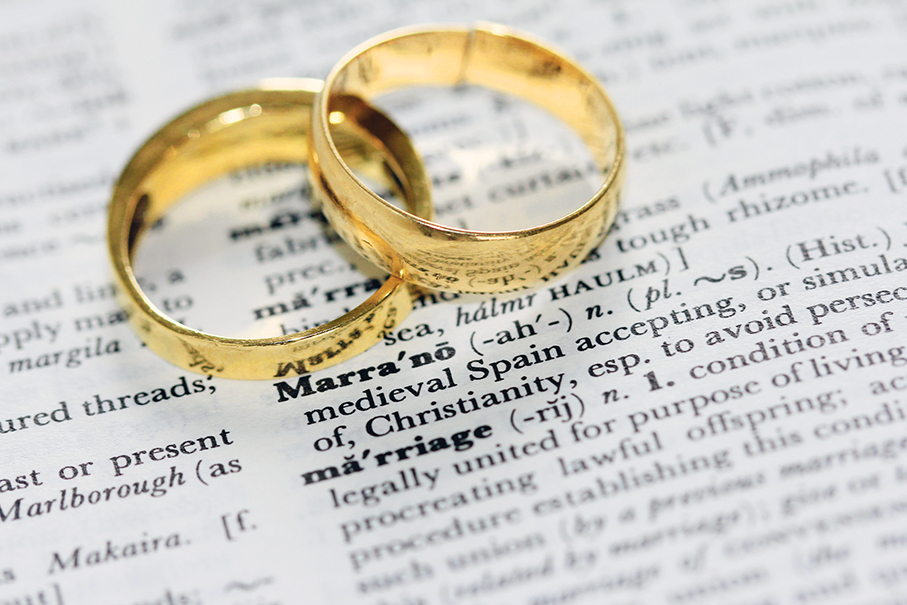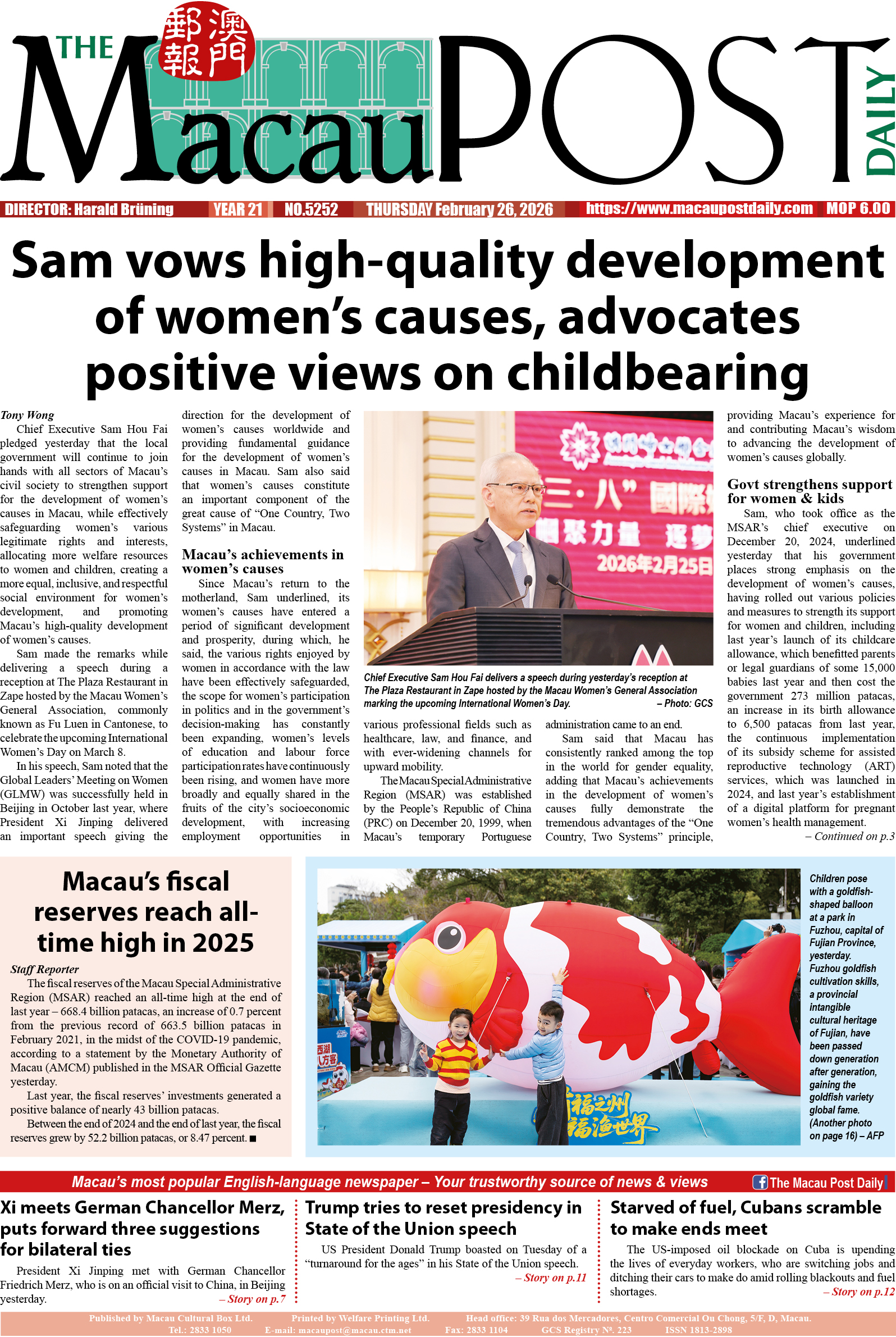I saw recently a post on social media about how a female was being pushed by her parents to get married, and even by her relatives.
However, is it important and necessary for girls to get married? The comments for the post tell me the answer is…… “no”, considering the current growth trend of late marriage and even singlehood for both men and women in Macau and other developed societies.
According to The Hill, a US political website, since the start of the 21st century, the US marriage rate declined from more than eight marriages per 1,000 to six marriages per 1,000 population in 2019. That marriage rate marks the lowest level since the US government began keeping marriage records for the country in 1867.
Moreover, Macau’s Statistics and Census Bureau (DSEC) released data in 2019 showing the continuation of the trend of late marriage, when local residents’ age at their first marriage continued to rise, from an average of 29 in 2011 to 29.5 in 2016.
“Trend” is defined by Cambridge Dictionary as a general development or change in a situation or in the way that people are behaving.
So, what causes the growth trend of both late marriage and singlehood?
According to ReviseSociology.com, the declining marriage and delayed marriage statistics in recent years are due to the changing of gender roles, the impact of feminism and female empowerment, and economic factors such as the increasing cost of living and the individualisation associated with postmodernism.
A gender role (aka a sex role) is a social role encompassing a range of behaviours and attitudes that are generally considered acceptable, appropriate, or desirable for a person based on that person’s sex, and are usually centred on conceptions of masculinity and femininity, according to Wikipedia.
Women’s traditional gender role stereotyped them as staying at home to look after their kids and taking care of the whole family. However, with the changing of the times, “economic power is shifting to women”, indicating that nowadays not only men have a right to be educated, but also women. In other words, females do not have to depend on males’ financial support.
Women’s empowerment may be defined in several ways, including accepting women’s viewpoints, making an effort to seek them out and raising the status of women through education, awareness, literacy, and training, according to Wikipedia.
Women’s empowerment equips and allows females to make life-determining decisions by tackling different societal problems, redefining gender roles.
Based on the two definitions of gender roles and women’s empowerment, their connection indicates the importance of education.
Early marriage usually happens in developing countries, where women have no freedom to choose their future, and lack education.
According to a report by the International Centre for Research on Women (ICRW), girls living in poor households are almost twice as likely to marry before 18 than girls in higher-income households, and more than half of the girls in Bangladesh, Mali, Mozambique and Niger are married before age 18. The report also points out that girls with higher levels of schooling are less likely to marry when they are children, citing that in Mozambique, for example, some 60 percent of girls with no education get married by 18, compared to 10 percent of girls with secondary schooling and less than one percent of girls with higher education.
Afterall, we can see that no matter the changes in gender roles or female empowerment, education plays an important role in the development of women in different aspects, changing their perspectives with new viewpoints over the years.
Putting yourself in a woman’s shoes, marriage is not the only future for women in the current trend, but education does influence one’s perception.

Photo courtesy of Unsplash









